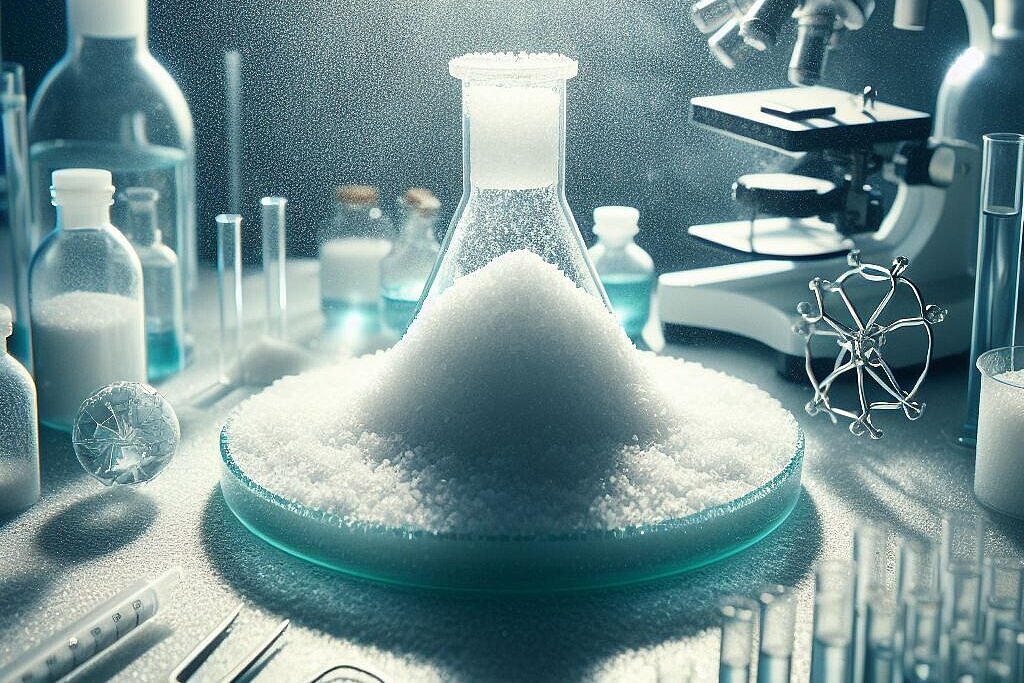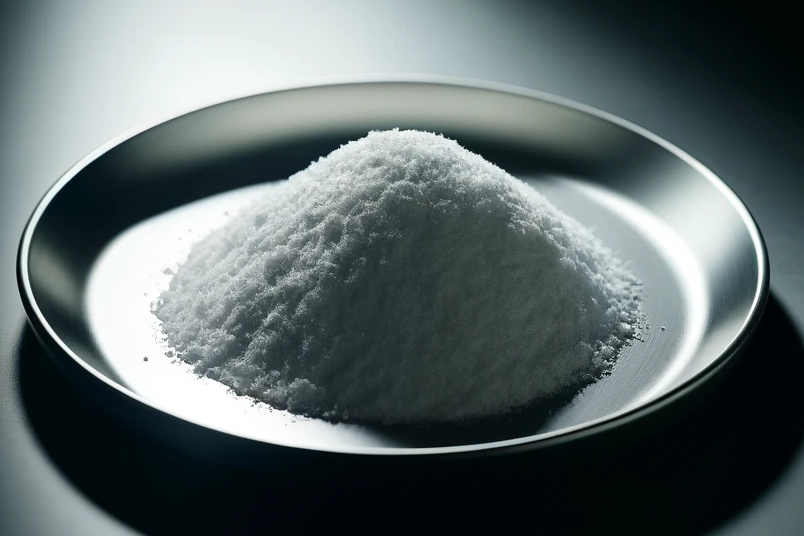Potassium iodide

When it comes to the health of our beloved four-legged friends, vitamins and minerals play a crucial role. One substance that is often overshadowed by other, better-known nutrients is potassium iodide. This essential mineral has both beneficial and detrimental aspects that need to be considered. In this article, we dive deeper into the world of potassium iodide to understand its importance in our dogs' diets.
What is potassium iodide?
Potassium iodide (KI) is a chemical compound of potassium and iodine. It is an important component in the diet that plays a key role in the function of the thyroid gland. The thyroid gland uses iodine to produce the vital hormones thyroxine (T4) and triiodothyronine (T3), which significantly affect metabolism, growth and development in dogs.
Benefits of potassium iodide
Thyroid health: The main function of iodine is to support the health of the thyroid gland. Adequate levels of iodine in the diet help to prevent thyroid disorders such as hypothyroidism.
Metabolic regulation: By supporting thyroid function, potassium iodide contributes to a balanced metabolism, which is important for the dog's energy production and general well-being.
Developmental support: In puppies, adequate iodine supplementation supports brain development and promotes healthy growth and development.
Disadvantages of potassium iodide
Iodine overdose: One of the challenges of using potassium iodide in dog food is the risk of iodine overdose, which can lead to hyperthyroidism and other thyroid problems. Symptoms of overdose can include weight loss, increased appetite and hyperactivity.
Sensitivity reactions: Although rare, some dogs may be sensitive to potassium iodide, which can lead to skin problems or other allergic reactions.
Interaction with other nutrients:Iodine can interact with and interfere with the absorption of certain minerals, such as calcium and phosphorus, emphasizing the importance of a balanced nutritional plan.
Finding a balance
Potassium iodide is an essential component of our dogs' diet, providing significant benefits for their thyroid health and general wellbeing. However, as with all nutrients, the right balance is crucial. An over- or undersupply of iodine can lead to health problems.
If you notice any signs of hypersensitivity or poisoning in your dog, you should see your vet immediately. We are not a substitute for a vet, but we try to be as accurate as possible. Every dog reacts differently and we recommend you get a second opinion or consult your vet if in doubt.
Stay healthy and take good care of your four-legged friend!😊
Similar to Potassium iodide
Sodium iodide (NaI) is an iodine salt that is rarely found in its pure form in nature, but plays a role in many aspects of human and animal nutrition. As a source of iodine, sodium iodide supports...
Potassium bromide (KBr) is a salt of the bromide ion and has been used in medicine to treat epilepsy since the late 19th century. In veterinary medicine, it has established itself as an effective...
Potassium chloride (KCl) is the potassium salt of hydrochloric acid. It forms colorless, salty-bitter tasting crystals that dissolve well in water. Potassium chloride is approved as a food additive...
Sodium chloride fulfills several important functions in the dog's body. Firstly, it is involved in the production of hydrochloric acid in the stomach, which is necessary for digestion. Secondly, it...



